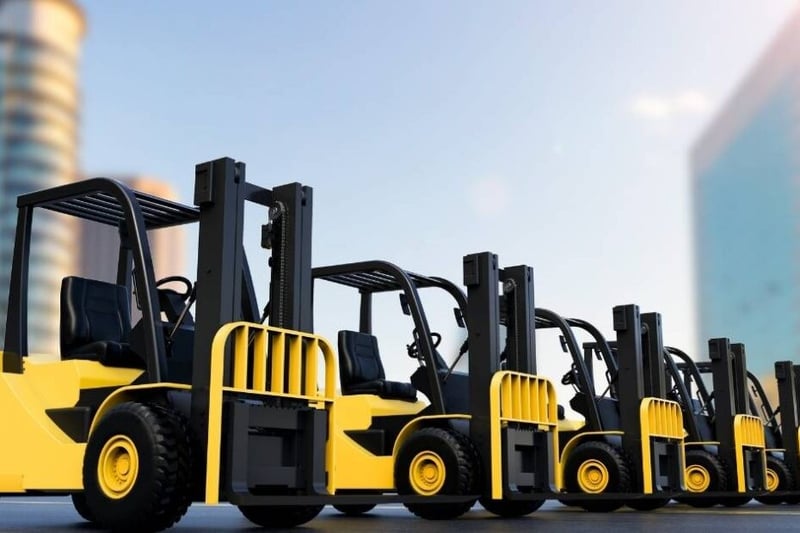
Selecting the right forklift is a crucial decision for any business that requires material handling. Whether you opt for a forklift for rent or a purchase, each option comes with its own set of benefits and considerations. This guide delves into the details of forklifts, helping you make an informed decision tailored to your business needs.
Understanding Your Forklift Requirements
Before diving into the specifics of different forklift models, it’s essential to assess your operational needs. Consider the type of materials you’ll be handling, the typical load weight, and the environment in which the forklift will operate. For example, forklift trucks are versatile and can handle a variety of tasks in different settings.
The Case for Renting a Forklift
Renting a forklift can be a smart choice for businesses with temporary or seasonal needs. It offers flexibility and often includes maintenance services, reducing the overhead costs associated with ownership. Forklift rental options vary, from short-term hourly rentals to long-term leases, providing solutions for different project durations.
Advantages of Forklift Rental:
- Cost-Effectiveness: For projects with a finite timeline, renting a forklift can be more economical than purchasing one outright.
- No Maintenance Worries: Rental agreements typically include maintenance, sparing you the ongoing costs of upkeep.
- Access to Latest Models: Rental services often offer the latest forklift models, equipped with advanced technology for improved efficiency and safety.
The Benefits of Buying a Forklift
Purchasing a forklift is a significant investment but can be more cost-effective over time for businesses with continuous, long-term forklift needs. Owning a forklift allows for complete operational control and eliminates the recurring costs associated with renting.
Advantages of Owning a Forklift:
- Long-Term Savings: While the initial cost is higher, owning a forklift eliminates rental fees and can be less expensive in the long run.
- Customization: Ownership allows you to customize your forklift to your specific needs, which is particularly useful for specialized operations.
- Availability: Having your own forklift ensures it is always available whenever you need it, without the need for planning ahead for rentals.
Different Types of Forklifts and Their Applications
Forklifts come in various types, each designed for specific tasks and environments:
- Counterbalance Forklifts: The most common type, ideal for a variety of indoor and outdoor jobs where balance and power are necessary.
- Reach Trucks: Best for warehousing operations where height and space efficiency are key. These forklifts can extend their forks beyond the compartment, allowing them to reach high shelves.
- Pallet Jacks and Walkie Stackers: Suitable for light operations such as moving pallets around a warehouse without the need for lifting them to high places.
- Rough Terrain Forklifts: Designed for outdoor construction sites and places with uneven surfaces. These forklifts are built to handle rough terrain with ease.
Choosing Between New and Used Forklifts
When purchasing a forklift, deciding between a new or a used model is another important consideration:
- New Forklifts: Offer the latest technology and the assurance of no wear and tear, which can be a good investment for businesses relying heavily on forklifts.
- Used Forklifts: A cost-effective option for businesses with limited budgets. Second hand forklifts can provide good value, but it’s important to thoroughly check their condition and maintenance history.
Finding the Right Supplier
Choosing a reputable supplier is critical, whether you are looking to rent or buy. A reliable supplier should offer a range of well-maintained forklifts for sale and rental options, provide thorough information about each model, and support you with excellent customer service.
Safety and Maintenance
Safety should always be a top priority when operating forklifts. Regular training for operators, adherence to safety guidelines, and routine maintenance checks are essential to prevent accidents and ensure the longevity of the equipment. Whether you choose a lift forklift or any other type, maintaining it properly is crucial for safe and efficient operation.
Conclusion
Choosing the right forklift involves weighing the pros and cons of renting vs. buying, understanding different types of forklifts, and considering new versus used options. By evaluating your specific needs and the offerings of potential suppliers, you can ensure that you select a forklift that will effectively meet the demands of your business while enhancing safety and efficiency.
Submitted on behalf of
- Company: Value forklifts
- Contact #: 0828881687
- Website
Press Release Submitted By
- Agency/PR Company: top click media
- Contact person: Josh Maraney
- Website
Top Click is one of South Africa’s leading full-service digital marketing agencies. Our custom-built, cutting-edge solutions are targeted to help you attract customers, convert leads and grow your business. From SEO and Google Ads to social media marketing and digital design, our measurable marketing campaigns deliver results – and ensure that, in a cluttered online marketplace, you rise above the rest.
Latest Press Articles
- How to Sell Krugerrands for Cash in South Africa
- The Best Kosher Safari Vacations
- Legal Software Solutions That Help Law Firms Stay Organised
- Essential Gadgets for Modern Living
- A Guide to Essential Tech and Gadgets for Every Home
- How to Sell Gold Jewellery for Cash in South Africa
- Finding the Right Rehab - A Guide to Recovery Options
- Legal Assistance When You Need It
- Eye Wash Stations - Essential for Workplace Safety
- Drip Trays - An Essential Tool for Spill Containment
- Spill Kits - Essential for Workplace Safety
- A Practical Look at Forklift Options and Rentals
- Simple Guide to Choosing a Sauna for Your Space
- Choosing the Right Plastic Chair for Everyday Use
- What to Know Before You Hire a Private Investigator
